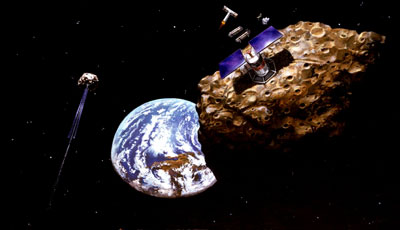I think the problem is constructing anything in space makes it a lot more expensive, especially if a crew is required. It is much easier and more cost effective to build modular components that don't need astronauts to assemble than to establish a safe working environment for astronauts in order to have them do it.
I can't see astronauts doing things by glove ever being up to the exacting requirements technology in space demands; dexterity in a space suit is, at best, a slow and arduous undertaking. Like it or not, machines do space better.
I also think the only purpose in doing anything in space that really counts will be in aid of Earth and it will have to do so through conventional economic means; ie deliver tangible returns to investors - Earth investors, because there aren't any other sort.
Something of value has to come back to Earth - in excess of what is spent (by Earth) on getting it. I think if we can't import bulk commodities like iron and nickel from space at comparable cost to Earth sources then asteroid mining is unlikely to thrive. Nickel is currently US$19,000 per metric ton. With massive growth in battery use that will only go higher. High nickel taenite, up to 65% Ni, would be worth over $12,000 per ton - and sellable as is, unrefined, for making high nickel steel alloys. But refined would yield almost as much worth of precious metals again. By any Earthly standard a commodity that exists in huge quantities, is worth $12,000 per ton without refining is better than any gold mine. And if something that valuable isn't enough then I think we should stop calling asteroids an economic opportunity.





